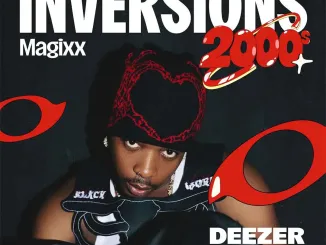E lon Musk’s $44 billion gamble on X—once dismissed as a financial blunder—may finally be paying off. The social media platform is now in talks to raise funding at a $44 billion valuation, signaling a dramatic reversal from its previous downturn. While the discussions remain ongoing, the shift is clear: major advertisers like Amazon and Apple are returning, and bondholders have offloaded debt at 97 cents on the dollar, marking a significant improvement from previous lows.
From Chaos to Political Powerhouse
X’s transformation has been nothing short of chaotic. Since taking over, Musk has slashed 80% of the workforce, reinstated banned accounts, and replaced the verification system with a paid model. These changes led to a spike in hate speech, causing an exodus of advertisers and a sharp drop in valuation. At one point, analysts estimated X was worth only 20% of its purchase price, later revising it up to 30% by the end of 2024.
Despite the turmoil, Musk doubled down on his vision, aggressively courting free speech advocates while dismissing corporate advertisers unwilling to align with X’s new direction. His strategy seemed reckless—until Trump’s return to power shifted the landscape.
Trump’s Influence: The X Factor
Musk’s close relationship with President Donald Trump has played a key role in X’s rebound. Now serving as a special government advisor, Musk has used X as a megaphone for the new administration, promoting policy shifts and his own Department of Government Efficiency (DOGE) initiatives.
Political analysts suggest that Musk’s alliance with Trump has fueled X’s resurgence, with the platform becoming the central hub for Trump-era discourse and policymaking. The result? Investors are no longer just buying into a social media company—they’re betting on Musk’s political influence.
Ad Revenue Returns, But Risks Loom
X’s financial outlook has improved with advertisers returning and bondholders regaining confidence. The platform’s ties to Musk’s AI venture, xAI, which is currently targeting a $75 billion valuation, also make it an attractive investment.
Meanwhile, bondholders who once faced significant losses have now sold off billions in debt at near face value. Analysts suggest that Musk’s cost-cutting measures, reliance on user-driven content moderation, and strategic political positioning have helped stabilize the company’s finances. However, with no public financial disclosures since X went private, much of its recovery remains speculative.
Can X Sustain Its Momentum?
Despite the apparent turnaround, serious challenges remain. Musk’s dream of turning X into an “everything app”—complete with digital payments, live streaming, and commerce—is still far from reality. Technical issues, including glitches in live audio features, persist, frustrating users.
More critically, Musk’s controversial approach to content moderation, including the reinstatement of extremist accounts and the removal of certain platform protections, could lead to another advertiser retreat. While companies like Amazon and Apple have resumed spending, their long-term commitment remains uncertain.
At its lowest point, X was valued at just 20% of what Musk originally paid—a warning sign that remains relevant. While the platform has rebounded on the back of Trump’s return and Musk’s aggressive cost-cutting, whether it can sustain a $44 billion valuation in the long run is far from certain.
For now, Musk has bought himself time. But whether X thrives or stumbles will depend on more than just political tailwinds and short-term investor confidence.














0 Comments